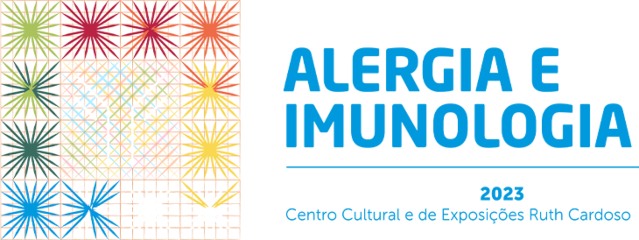Dados do Trabalho
Título
SARS-CoV-2 infection in a patient with X-linked agammaglobulinemia (XLA): clinical evolution and Covid-19 vaccines responses
Resumo
Introduction: XLA patients, when infected with SARS-CoV-2, may present a prolonged virus persistence and develop auto-inflammation. We describe a 17-year-old Brazilian XLA patient who developed an autoinflammatory disease following 16 months of SARS-CoV-2 infection despite a robust cellular immune response following vaccination.
Presentation of the case: SARS-CoV-2 infection was confirmed on December 20, 2020 by RT-PCR. The patient was admitted to the hospital on January 24, 2021, with a 4-day history of fever. He had several complications and developed significant respiratory discomfort, requiring a few ICU stays and continuous O2 support. After 77 days, RT-PCR was negative, but fever and cough persisted. The patient was discharged from the hospital after 113 days, requiring home O2 for sleep and exercise and lost 9kg. In May 2022, he restarted with daily fever with a new positive RT-PCR and in September 2022 a positive rapid antigen test. Serum amyloid-protein-A was 518mg/L (ref: <6.4mg/L). He was immunized for Covid-19 on December 8, 2021, 205 days after discharge, with mRNA-vaccines (Pfizer-BioNTech-BNT162b2) and was sampled 1 and 3-months after 3rd-dose, 1 and 4-months after 4th-dose and 1-month after 5th-dose of bivalent Pfizer. T-cell responses by ELISpot and humoral response (RBD-Wuhan neutralizing antibodies) by ELISA were evaluated. 24% neutralization was observed 1-month after 3rd-dose and 30% 3-months after 3rd-dose, which represents a negative humoral response. By contrast, T-cell responses were positive at all samples.
Discussion: We report the case of the longest duration of SARS-CoV-2 persistence in an immunocompromised patient. Maybe SARS-CoV-2 activated inflammasome pathways mimicking an autoinflammatory disease with secondary amyloidosis. The patient responded to a 3-dose immunization of SARS-CoV-2 and prior SARS-CoV-2 infection with a robust T-cell response.
Área
Imunodeficiências
Autores
VITOR GABRIEL LOPES DA SILVA, CAROLINA SANCHEZ ARANDA, Maria Isabel de Moraes-Pinto
